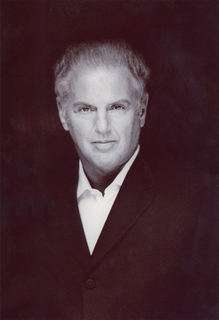|
Back
Daniel In The Roaring-Animal’s Den New York
Metropolitan Opera
12/14/2008 -
Franz Liszt: Three Sonnets of Petrarch – St. Francis of Assisi Preaches to the Birds – After a Lecture of Dante – Transcriptions on Operas by Giuseppe Verdi: Aida: Sacred Dance and Finale duet, S. 436; Miserere of Trovatore S.433; Rigoletto: Concert Paraphrase, S. 434
Daniel Barenboim (Piano)

D. Barenboim (© Richard Haughton)
“Opera would be far better”, declared Gioacchino Rossini, “without any singers”.
Had the composer been referring to the Metropolitan Opera, his desire would have been fulfilled twofold last night. First, the Met, like the 17-year cicada, blossoms with a solo piano recital only once every two decades, so Daniel Barenboim followed Vladimir Horowitz’s recital twenty years ago. Second, half of the all-Liszt program did indeed have opera without singers, specifically three of Liszt’s “transcriptions” (I almost wrote transgressions) of Verdi operas.
The concert was billed almost as a celebration, and the sold-out audience was anticipating great things. The golden curtain was down, leaving only the Steinway near the edge of the stage. When the soloist, dressed all in black, entered, the applause was a bountiful beginning.
The only trouble was that Mr. Barenboim had forgotten to inform them that this so-rare concert would not be the usual fare, and the most enthusiastic concertgoers were bound to be disappointed. Yes, the program was all-Liszt, but certainly not the Liszt of bluster and fire, not the Hungarian Rhapsody or Mephisto Waltz or Sonata. The first half showed the composer’s medieval, literary, religious introverted guise. The secular second half remained Italian, and the Verdi operas were grand pop tunes, ornamented, filled with flourishes, but still, because they are played rarely as a set, unsettling to opera or piano purists.
Indeed, Mr. Barenboim presented a daring concert, but his whole life has been daring. Thus, his choices themselves seemed packed with possibilities, which, through his artistry and perfection were obviously fulfilled. For Mr. Barenboim is the obverse die of Mr. Horowitz. He can take liberties with the tempo, but his flourishes are never entertainment, and he never pushes for the applause. The first half Liszt might not have the hidden feelings of a Bach or Beethoven, but Liszt frequently wore his heart on his fingertips, and Mr. Barenboim inspires heart murmurs, not heart attacks.
Each of the five works has the most daring, incredible finger work, and with almost every other pianist, one would remember the pyrotechnics. What makes Mr. Barenboim such a rare artist is that we could be moved by the emotion of adoration in all three Petrarch sonnets. The “intimate sentiment” of the 47th Sonnet was not naïve, but its simple melody was always evident. The 104th Sonnet is more agitated, but Mr. Barenboim was more subtle. The first part has dozens of harp-like arpeggios, yet each one was varied under his hands. The 123rd Sonnet has a brilliant cadenza at the end, but the memory is of a liturgical placidity.
St. Francis Preaching to The Birds was not so much a reflection as a story, and Mr. Barenboim related it elegantly. The bird trills and twitters (unlike Messiaen, we aren’t burdened with attempting to identify them), the alto song of St. Francis (Liszt certainly had heard of Francis’s supposed beautiful singing voice), and the rumblings of the heavens, all were offered with a pellucid delicacy. But the final work of the first half gave us the Liszt of drama without bombast. After a Lecture of Dante was obviously a lecture about the Inferno. From the first chthonic notes to the flames and the confusion of chords with incredible rippling effects, Mr. Barenboim obviously enjoyed the satisfaction of picturing a demonic, if not blistering, hell.
For the second half, the audience was resembled a bobbing automobile doll, recognizing the final duet of Aida or Trovatore’s reverential Miserere. And of course Rigoletto, the only transcription played with relative frequency. These are usually show pieces, but Mr. Barenboim never ever lets the obvious emotions detract from the artistry. Certainly he had a chance in the Miserere, for the prayer quickly is transported into non-stop 32nd notes. Mr. Barenboim was precise in the runs, but more important, he followed Liszt’s dictum to “always pronounce the melody”.
For the final Rigoletto, Mr. Barenboim again demonstrated that not even this piece was meant to bring the house down. He played it with glittering effect, yes. But where others give it effects between the Hope Diamond and disco strobes, he turned it into a light ruby which glowed as much as it dazzled.
Mr. Barenboim does not always give encores, but he played three: a Scarlatti Pastorale, the Chopin “Minute” Waltz—where he actually let himself go all the way with the tempo—and D flat Nocturne, Opus 27. After that, his last flourish was indicative of the whole concert. Instead of waving goodbye, he came out for the seventh curtain call, went to the piano, and with utmost finesse quietly closed the lid.
Harry Rolnick
|